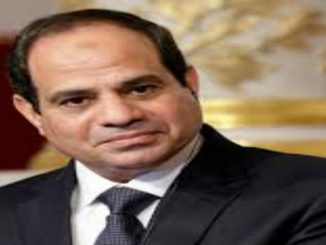
Egypt’s parliament approved a long-awaited law introducing a value-added tax (VAT) of 13 %, rising to 14% in the next fiscal year, a key part of the government’s economic reform ahead the IMF loan and cut the deficit, reported Reuters.
For various weeks, the parliament had been debating the law with dozens of lawmakers opposing the government’s initial proposal of 14 %, for fear of triggering inflation in a country where tens of millions live one pay check away from hunger.In addition,the house budget committee had pushed to reduce the rate to 12%.
However, the deadlock was broken when Finance Minister Amr El Garhy proposed a compromise of 13% for the 2016-17 fiscal year.
Yasser Omar, an MP on the house budget committee said, “The law was passed and got final approval. It will be 13 %for this year, and at the start of the next financial year will be 14%.”
In response, several members of parliament from the 25-30 Alliance rejected the value-added tax (VAT) law that has been approved during session.
The coalition also refrained from voting on the bill after parliamentary speaker Ali Abdul Aal refused the electronic voting system as he insisted that the voting process be conducted by a show of hands and he also didn’t allow them to speak.
MP Haitham Al-Hariri said, “The VAT will impose more financial struggle on citizens, which is not the right time for such a decision to be taken. The rate of inflation will see a significant incline.”
The VAT tax works on taxing businesses at each stage of production on the value added each time a commodity changes hands as it goes up the chain from a raw material to a consumer product. As a commodity moves up through the supply chain, each business has to pay taxes to the state. The same principle applies to imported goods, which are taxed when they arrive in the country and each time they change hands after that.
Egypt’s economy has been suffering one of its biggest economic crises in its history. As a result, Egypt seeks the IMF loan agreement and its series of economic reforms including the value-added taxation, cutting electricity subsidies and curbing wage increases. Moreover, economists expect the central bank to devalue the local currency or adopt a flexible exchange rate system aiming to attract investments that will bolster reserves.



